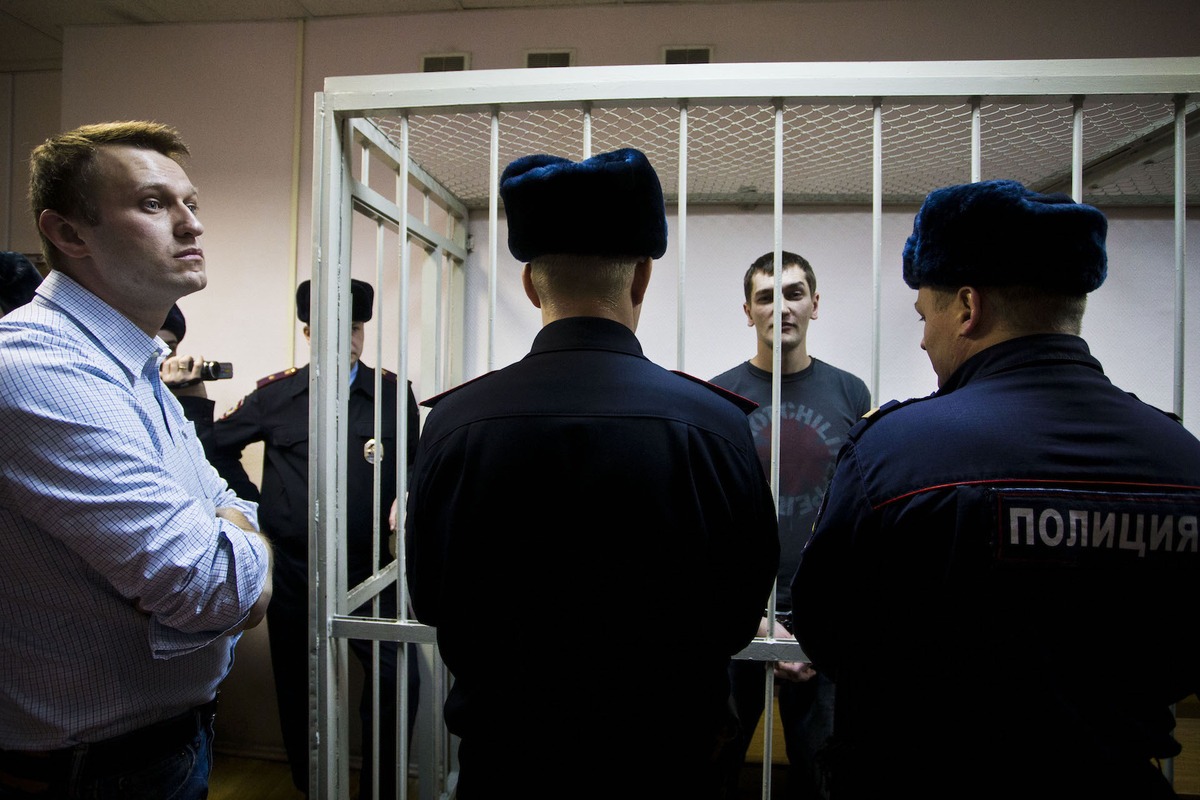On December 30 of last year, prominent Kremlin critic and opposition leader Alexei Navalny and his brother Oleg were convicted by a Russian court of embezzlement in a trial that was widely viewed as trumped up.
Prosecutors said they stole 30 million rubles (about $432,000) from two firms, including an affiliate of the French cosmetics company Yves Rocher, between 2008 and 2012.
It didn't matter that Yves Rocher said that no crime was committed.
The court handed down a suspended sentence to Alexei while dealing a 3-and-a-half-year prison term to Oleg, the father of two small children.
Alexei led mass protests against Russian President Vladimir Putin and government corruption in 2012. Russian opposition figures say imprisoning Alexei risked inciting fresh protests, so in a cruel and unusual move the government decided to punish him by jailing Oleg instead.
"It's obvious that my brother is in jail because of me," he said. "The Kremlin found a painful spot."
The case seen is seen as one example of the Kremlin's worrying and growing campaign to stifle dissent by using Russia's courts to persecute opponents through elaborate show trials.
Oleg has remained in prison since. On Aug. 14, he was punished with 15 days in solitary confinement "for sleeping on a Sunday afternoon," Alexei wrote on his blog.
Russia's prisons are notoriously cruel places with some of the hardest penal regimes in the world. Pussy Riot's Nadiya Tolokonnokova, who spent nearly two years in prison for performing a "punk prayer" inside a Moscow church, told Mashable in Moscow in June that the conditions are "like torture chambers."
"You don't know a thing about the outside world; you're isolated, but you know you are feeling horribly worse every day," she said. "It's scary."
In July, before his punishment, Oleg answered questions from Mashable about what life is like for him behind bars. The prison required that his responses be vetted and that they be kept to one hand-written, front-and-back page. His answers have been translated and edited for clarity by Mashable.
Bunking with 'nice guys'
"I am surrounded by a fence, inmates and the police =) I honestly don’t know how to describe this," Oleg writes of the minimum security prison in which he's held. "The territory is not that big and it has few dormitories, a dining room, bathhouse, football field (normal football!) and a lot of fences and barbed wires."
In Russian minimum security penal colonies, inmates are placed in cells only for violations, or for their personal safety.
"So usually all the inmates live in dorms fit for 40 to 100 people in each," Oleg says. "60% here are convicted for drug related crimes, 30% for minor thefts of robberies, 5% for inflicting serious injuries on someone and 5% for more unusual charges. Of those under strict conditions, 60% are imprisoned for selling drugs, 40% for rapes and murders."
"So, generally speaking, all are nice guys," he quips sarcastically about his prison mates.
Monotonous daily life
Oleg describes his everyday routine inside what is a minimum security prison as a monotonous one.
"Wake up call -> physical exercise -> breakfast -> work -> lunch -> work -> dinner -> go to bed -> wake up call," he writes.
What free time he has is spent learning Spanish, which he says isn't easy. "One kind person here helps me with improving my English and gives me a hard time with tasks," he says.
He says he's begun studying for a second degree in criminal law. "And I draw [pictures], of course."
He says he does not watch television and has no access to a computer. Inmates are not allowed access to these things, he says, so what news he gets comes from family who are allowed to see him only once every three months.
While Oleg wishes he would be allowed more visits, he says when they do happen that they are "awesome."
"The [visitor's] room is small and cozy, you can also rent a DVD player and a fan. Open the freezer and place the fan near and you have an air conditioner," he says.
"By the way, the food is not that bad," he adds. However, he often eats that which is provided to him by visitors who are able to pass it to him during visits.
All eyes on him
As for how he's viewed and treated by other inmates and prison guards, he says the latter generally "support what my brother [Alexei] does."
"The colony's administration does not, but that is before an explanatory talk," he jokes.
"There is a lot of attention paid to me. It helps sometimes, but it usually agitates," he says.
No chance for early release
Psychologically, he says he is "perfect." However, his "physical state is poor, that is not because of my imprisonment but because of me neglecting sport before." But with time specifically set aside in prison for exercise, he explains, "I am currently fixing that."
He knows the case against him is purely political. "The authorities are trying to derail Alexei, that's why I was predicting this outcome," he writes. "To imprison him means a serious risk of an uprising… while as imprisoning me is safe and is a good way to pressure him psychologically."
Asked whether he thinks he'll be released early, he replies, "Not at all."
Fuente: mashable.com
